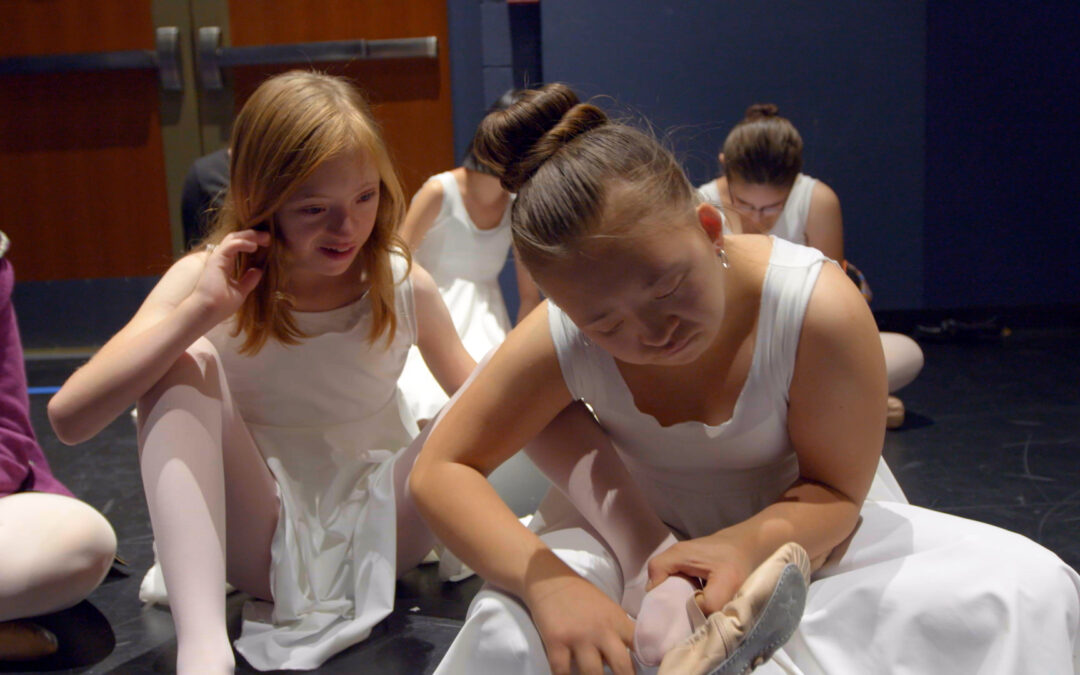(IMAGE: Kandoo Films)
Kandoo Films, 2022. 85 minutes. Documentary.
Grade: 3.5 out of 4
When I sat down to watch Everybody Dance with my wife, her reactions were fairly instant. “This is sweet. This is good,” she began, and as the movie ran on, this became, “You’d better not say anything bad about this movie.” Finally, towards the end, the final evolution: “If you give this a bad review, I’m kicking your ass.”
My behind is in no danger this time. Everybody Dance is the kind of movie you’d have to be a Bond villain-level sociopath to beat up on. It’s the perfect antidote to the dance-related productions she’s had me watch, like Dance Moms, in which unfortunate young talents seem forever caught between social climbing and cruelly competitive mothers and the eternally obnoxious, cutthroat teacher Abby Lee Miller, who’s the sort of trainwreck reality TV loves. There’s got to be some kind of sociological phenomenon to explain why documentary movies like underdog heroes, while docudrama TV favors society’s loudest and worst. Regardless, it’s at play here – Ballet For All Kids founder Bonnie Schlachte is clearly a force for good in the world, and a refreshing blast of positivity in a media landscape that exacerbates divisions.
Through Bonnie, we meet several special-needs kids with varying conditions, who give ballet dancing their all only to find it greatly benefits them in other areas as well. Their differing abilities frequently represent different types of autism, but also other disorders, like forms of cerebral palsy and rare neurodegenerative conditions. One teenage girl describes hers as something that simply blocks proper signals between her brain and legs. Others with autism manifest very differently, from sensory overload to verbal processing issues, requiring Schlachte to use more visual aids. Indeed, for viewers who don’t actually know any autistic people, this documentary may also serve as a sort of Autism 101, explaining the spectrum and how vastly different the various sub-conditions falling under that blanket term can be.
The documentary’s dramatic tension, such as it is, involves the countdown to a student showcase, aptly titled “Shine,” like the movie about David Helfgott, the pianist who dealt with schizoaffective disorder. Because the movie and the ballet studio are inherently a calm, welcoming safe space, the tension isn’t “Will anything go horribly wrong?” The showcase is not a competition. Rather, the tension is whether all of Schlachte’s techniques to specifically teach differently abled kids in a classroom setting will hold up under the spotlights in an otherwise darkened theater. Stage fright + sensory overload + injury proneness = ?
Director Dan Watt, a documentary producer and live stage choreographer, focuses on the important details as needed, like where the feet move and the squares on the floor designed to focus the kids’ attention, while never losing sight of the kids at the heart of the show. A little home video footage, presumably contributed by parents, gets thrown in for some backstory and flavor, but as someone who knows this world, Watt never lets himself get distracted from the big show. He also periodically centers Schlachte’s student assistants, upscale high schools students without disabilities trained specifically to help the young ‘uns who haven’t –and in some cases, won’t ever have – learned to manage their conditions as regards putting on a show.
In a culture where grown adults try to argue about whether or not a real-life cartoon mermaid could scientifically have dark skin, it’s admittedly a stretch to imagine a movie that could bring everybody together to feel inspired. But if there is one, it’s Everybody Dance. It may not leave all viewers wanting to learn ballet, though chances are it’ll persuade more than a few parents to push their kids into lessons. However, if it doesn’t make you cheer for those who do, the problem is yours, not the movie’s.

